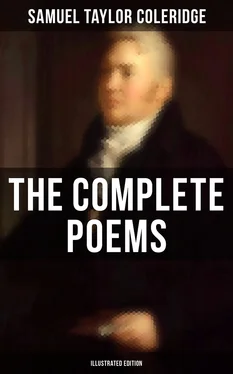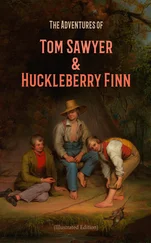THE SUN OF RIGHTEOUSNESS
A bodily substance, an unborrowed Self—God in God immanent! The Eternal Word! That goes forth yet remains! Crescent and Full and Wane, yet ever entire and one, it dawns, and sets, and crowns the height of heaven. At the same time, the dawning and setting sun, at the same time the zodiac—while each, in its own hour, boasts and beholds the exclusive Presence, a peculiar Orb, each the great Traveller's inn, yet still the unmoving Sun—
Great genial Agent in all finite souls;
And by that action puts on finiteness,
Absolute Infinite, whose dazzling robe
Flows in rich folds, and plays in shooting hues
Of infinite finiteness.
FOR THE "SOOTHER IN ABSENCE." Syracuse, September 26, 1805
I was standing gazing at the starry heaven, and said, "I will go to bed, the next star that shoots." Observe this, in counting fixed numbers previous to doing anything, and deduce from man's own unconscious acknowledgment man's dependence on something more apparently and believedly subject to regular and certain laws than his own will and reason.
To Wordsworth in the progression of spirit, once Simonides, or Empedocles, or both in one—
"Oh! that my spirit, purged by death of its weaknesses, which are, alas! my identity, might flow into thine, and live and act in thee and be thine!"
Death, first of all, eats of the Tree of Life and becomes immortal. Describe the frightful metamorphosis. He weds the Hamadryad of the Tree [and begets a twy-form] progeny. This in the manner of Dante.
Sad drooping children of a wretched parent are those yellowing leaflets of a broken twig, broke ere its June.
We are not inert in the grave. St. Paul's corn in the ground proves this scripturally, and the growth of infants in their sleep by natural analogy. What, then, if our spiritual growth be in proportion to the length and depth of the sleep! With what mysterious grandeur does not this thought invest the grave, and how poor compared with this an immediate Paradise!
I awake and find my beloved asleep, gaze upon her by the taper that feebly illumines the darkness, then fall asleep by her side; and we both awake together for good and all in the broad daylight of heaven.
Forget not to impress as often and as manifoldly as possible the totus in omni parte of Truth, and its consequent interdependence on co-operation and, vice versâ , the fragmentary character of action, and its absolute dependence on society, a majority, etc. The blindness to this distinction creates fanaticism on one side, alarm and prosecution on the other. Jacobins or soul-gougers. It is an interesting fact or fable that the stork (the emblem of filial or conjugal piety) never abides in a monarchy.
Commend me to the Irish architect who took out the foundation-stone to repair the roof.
Knox and the other reformers were Scopæ viarum —that is, highway besoms.
The Pine Tree blasted at the top was applied by Swift to himself as a prophetic emblem of his own decay. The Chestnut is a fine shady tree, and its wood excellent, were it not that it dies away at the heart first. Alas! poor me!
TASTE, AN ETHICAL QUALITY
Modern poetry is characterised by the poets' anxiety to be always striking. There is the same march in the Greek and Latin poets. Claudian, who had powers to have been anything—observe in him this anxious, craving vanity! Every line, nay, every word, stops, looks full in your face, and asks and begs for praise! As in a Chinese painting, there are no distances, no perspective, but all is in the foreground; and this is nothing but vanity. I am pleased to think that, when a mere stripling, I had formed the opinion that true taste was virtue, and that bad writing was bad feeling.
A PLEA FOR POETIC LICENSE
The desire of carrying things to a greater height of pleasure and admiration than, omnibus trutinatis , they are susceptible of, is one great cause of the corruption of poetry. Both to understand my own reasoning and to communicate it, ponder on Catullus' hexameters and pentameters, his " numine abusum homines " [Carmen, lxxvi. 4] [and similar harsh expressions]. It is not whether or no the very same ideas expressed with the very same force and the very same naturalness and simplicity in the versification of Ovid and Tibullus, would not be still more delightful (though even that, for any number of poems, may well admit a doubt), but whether it is possible so to express them and whether, in every attempt, the result has not been to substitute manner for matter, and point that will not bear reflection (so fine that it breaks the moment you try it) for genuine sense and true feeling, and, lastly, to confine both the subjects, thoughts, and even words of poetry within a most beggarly cordon. N.B. —The same criticism applies to Metastasio, and, in Pope, to his quaintness, perversion, unnatural metaphors, and, still more, the cold-blooded use, for artifice or connection, of language justifiable only by enthusiasm and passion.
RICHARDSON
I confess that it has cost, and still costs, my philosophy some exertion not to be vexed that I must admire, aye, greatly admire, Richardson. His mind is so very vile a mind, so oozy, hypocritical, praise-mad, canting, envious, concupiscent! But to understand and draw him would be to produce a work almost equal to his own; and, in order to do this, " down, proud Heart, down " (as we teach little children to say to themselves, bless them!), all hatred down! and, instead thereof, charity, calmness, a heart fixed on the good part, though the understanding is surveying all. Richardson felt truly the defect of Fielding, or what was not his excellence, and made that his defect —a trick of uncharitableness often played, though not exclusively, by contemporaries. Fielding's talent was observation, not meditation. But Richardson was not philosopher enough to know the difference—say, rather, to understand and develop it.
HIS NEED OF EXTERNAL SOLACE
O there are some natures which under the most cheerless all-threatening nothing-promising circumstances can draw hope from the invisible, as the tropical trees that in the sandy desolation produce their own lidded vessels full of the waters from air and dew! Alas! to my root not a drop trickles down but from the watering-pot of immediate friends. And, even so, it seems much more a sympathy with their feeling rather than hope of my own. So should I feel sorrow, if Allston's mother, whom I have never seen, were to die?
MINUTE CRITICISM
Stoddart passes over a poem as one of those tiniest of tiny night-flies runs over a leaf, casting its shadow, three times as long as itself, yet only just shading one, or at most two letters at a time.
DR. PRICE
A maidservant of Mrs. Clarkson's parents had a great desire to hear Dr. Price, and accordingly attended his congregation. On her return, being asked "Well, what do you think?" &c., "Ai—i," replied she, "there was neither the poor nor the Gospel." Excellent that on the fine respectable attendants of Unitarian chapels, and the moonshine, heartless head-work of the sermons.
A DOCUMENT HUMAIN
The mahogany tables, all, but especially the large dining-table, [marked] with the segments of circles (deep according to the passion of the dice-box plunger), chiefly half-circles, O the anger and spite with which many have been thrown! It is truly a written history of the fiendish passion of gambling. Oct. 12, 1806. Newmarket.
PINDAR
The odes of Pindar (with few exceptions, and these chiefly in the shorter ones) seem by intention to die away by soft gradations into a languid interest, like most of the landscapes of the great elder painters. Modern ode-writers have commonly preferred a continued rising of interest.
Читать дальше












